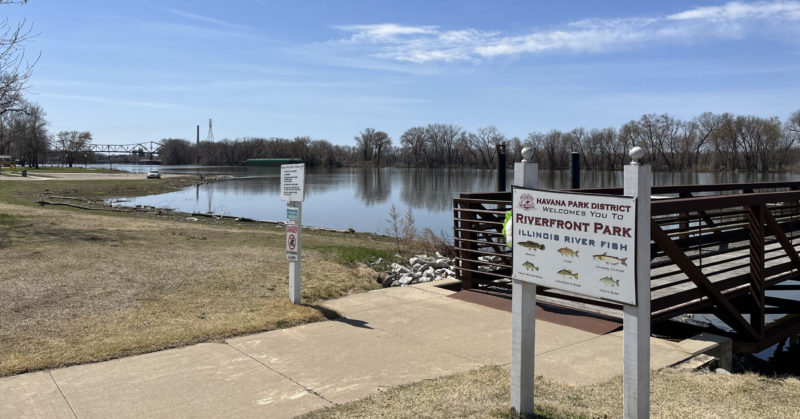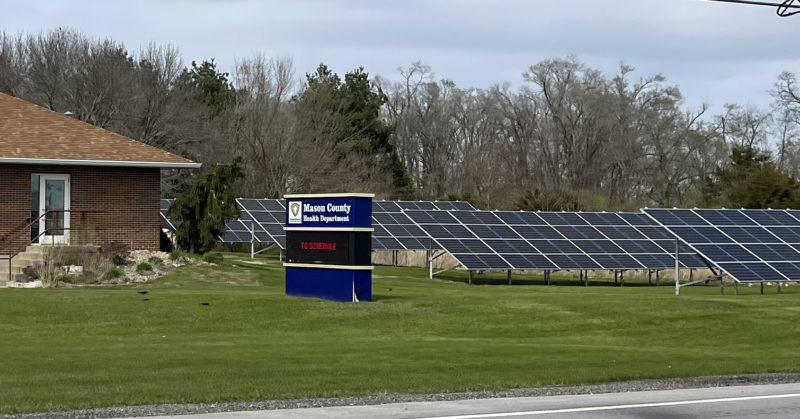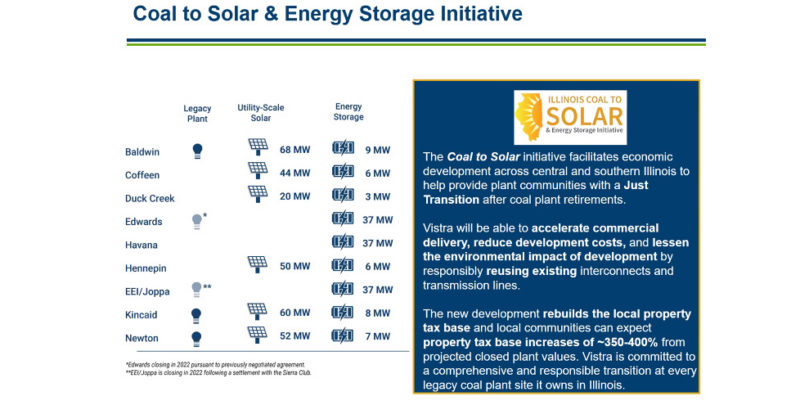The Havana Park District opened the doors of its Nature Center on April 1st of this year. The Nature Center sits on the banks of the Illinois River upstream of the shuttered Vistra coal plant and in a community surrounded by rich and diverse natural and cultural resources, including the Emiquon and Chautauqua National Wildlife Refuges, Rockwell Mound, and more. The Nature Center used to be open all year long, but in late 2019, when the Vistra Coal Plant closed in Havana and stopped paying taxes, the Park District lost about a third of its funding. Their staff has been cut, and they’ve had to make changes, like closing the Nature Center in the winter.
Havana (Mason County) and the Havana Park District are not alone in the economic and social impact that coal plant closure brings. Coal communities across Illinois and the country are experiencing the same. As we develop public policies to address the changing energy sector and climate change, there is a commitment by government leaders, labor, and the environmental community to ensure a “just transition,” a proactive practice of addressing impacts and investing in transitioning coal communities that will be among the hardest hit.

Throughout 2018-21, we helped ensure coal communities had the information they needed and a voice in the process to develop and pass Illinois energy and climate legislation. We advocated for policies that would support a just transition, and we celebrated the inclusion of the Energy Community Reinvestment Act in the Climate and Equitable Jobs Act (CEJA). These policies aim to attract new investment into transitioning coal communities and directly aid those local communities and their residents. We’ve prepared a fact sheet to share what we know about the new provisions of the Energy Community Reinvestment Act and explore them further in this blog post.
Energy Community Transition Grants
The Department of Commerce and Economic Opportunity (DCEO) is tasked with developing a new grant program for transitioning energy communities. The “Energy Community Transition Grant” program will help eligible communities plan for or address the economic and social impact of plant retirement or coal mine closure. Eligible communities include areas that have lost a fossil fuel plant or coal mine (or experienced reduced operation) within the last 6 years, or will lose one in the next 6 years. Eligible grantees include local units of governments that host the closed plant or mine, and they may partner with other local units of government, economic development organizations, local educational institutions, and community-based groups. Communities like Havana are coming together to plan for how this funding can fill in tax revenue losses and make sustainable investments in the critical services that have suffered in recent years.

DCEO is also tasked with developing an Energy Transition Workforce Commission to study and report on the impacts of recent and anticipated plant and mine closures. Soon, we should see a report from the commission on the impact of the energy transition and examine the following elements: workforce impacts, revenue impacts to local governments, emerging industries, environmental considerations, and economic impacts of the energy transition. This information will be critical for state and community leaders to better plan for the lost jobs and revenue that plant and mine closures bring.
Clean Energy Benefits Expected
Under CEJA, Vistra Energy will re-develop shuttered coal plants into solar farms and energy storage facilities, an initiative known as the Coal to Solar & Energy Storage. In Havana, a 37MW battery storage project is planned. In other coal communities, Vistra has proposed a combination of solar and battery storage. New solar incentive funding in CEJA is also prioritized in coal communities and low income communities.

Under the law, the Illinois Power Agency will optimize the procurement of Renewable Energy Credits (financial incentives) for utility scale solar projects in energy communities. Larger projects like these are expected to help replace lost tax revenue in communities that saw decreased revenue when plants closed. And the benefits of solar are also reaching businesses, homeowners, non-profits, and government entities in coal communities like Havana. In 2020, the Mason County Health Department went solar and the Havana School District is exploring a solar project. These projects will lower electricity bills, freeing funds for other critical services.
Education and Conversations Continue
Much of what is in CEJA is new, and the agencies in charge of implementing the law are hard at work seeking stakeholder input and developing the new reports, programs, and grants. We’re looking forward to engaging with these agencies and providing input as they develop and implement these programs. Similarly, we are continuing conversations with coal community leaders and providing support to ensure they know what is available in CEJA, from the new grants to the clean energy incentives and programs that can benefit communities across Illinois.







